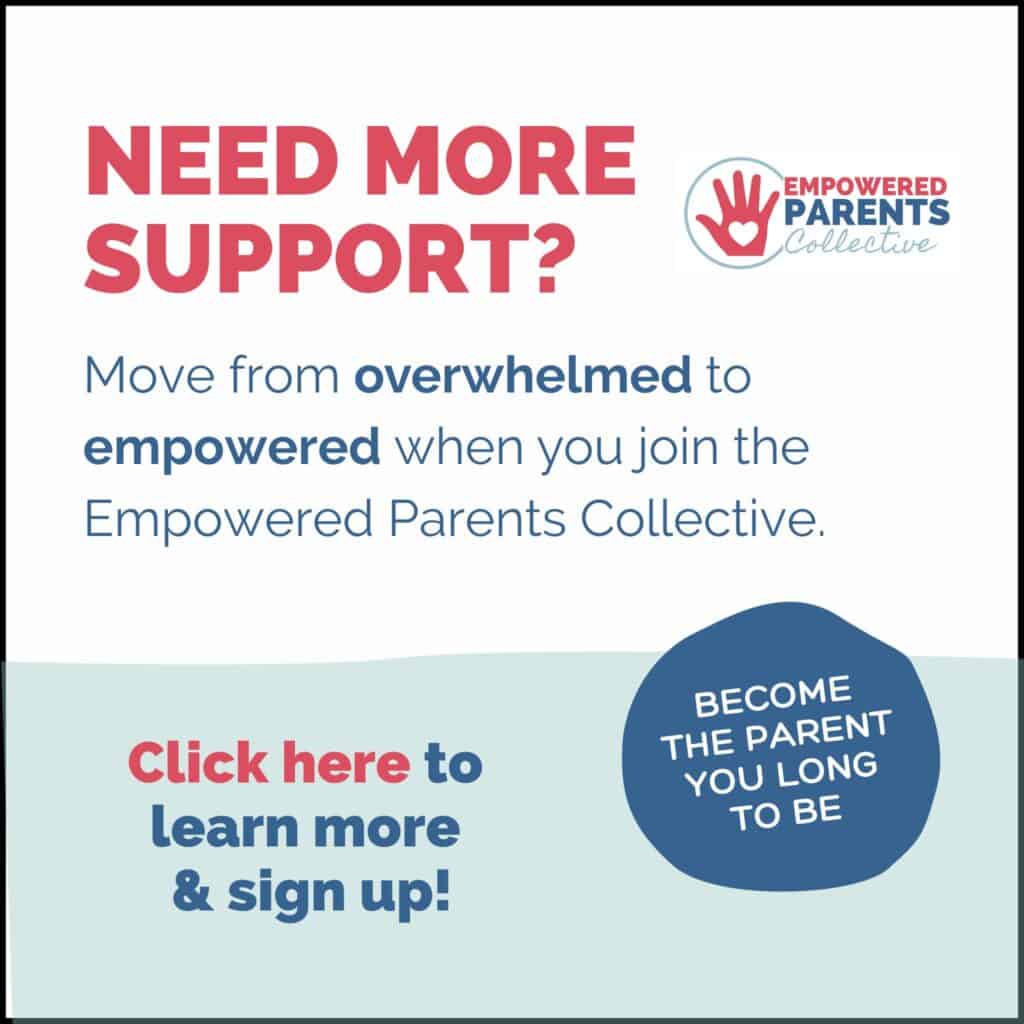How to Build a Rock Solid Parent Child Relationship
Building a strong parent child relationship requires five key elements that not only bond us to our children but improve our ability to coach, guide, and discipline them.

Imagine this: A relationship with your child where you feel at ease, have open and honest dialogue, and consistently share mutual respect and trust.
The kind of relationship where you have a connection with your toddler and are able to help them through difficult emotions.
A relationship where your seven-year-old feels comfortable telling you about the kid who’s been bullying him at school.
And a relationship where your teen talks to you about the tough issues they’re facing and turns to you for help when they find themselves in difficult situations with peers.
These are the relationships most parents aspire to have with their children.
Whether you’re a new parent hoping to build this type of positive relationship with your baby or a parent whose bond with your older child feels a little shaky, the following advice can help:
Five elements that form positive parent-child relationships:
While every parent-child relationship is unique, decades of research show that key elements form the basis of a strong and healthy parent-child relationship.
These elements are found in the authoritative parenting style, commonly known as positive parenting.
This style of parenting is a hybrid of being loving and warm while also providing kids with boundaries and positive discipline. Kids raised with this parenting style are shown to have greater self-esteem & mental health, positive social skills, make good choices independently, and trust that their parents have their best interests at heart. (Click here to learn more about this parenting style).
Here are a few of the key elements:
Unconditional love and acceptance
One of the most important elements of any strong relationship is the presence of unconditional love and acceptance.
While most parents feel it’s easy to love their child, showing unconditional love means never withholding love or affection for obedience. Never making a child “earn” attention or affection. Or never making love a reward for success.
Accepting children for who they are goes hand-in-hand with unconditional love. The more we celebrate our children – flaws and all – for the individuals they are and grow into, the more we’re demonstrating that we support them and are on their side (i.e. build connection).
It’s through this unconditional love and acceptance that children begin to feel trust and security in their relationship with us.
Mutual respect and trust
No one can feel a strong bond in a relationship without mutual respect and trust. And it’s up to parents to form the foundation of a secure relationship built on these characteristics.
In infancy, mutual respect and trust are established as babies look to their parents to meet their needs and respond to their emotions. The secure and healthy attachment formed with infants sets the stage for a strong bond throughout childhood.
Parents can maintain this unique bond by continuing to be responsive to their school-age child’s needs, including emotional needs of love, affection, and empathy. Listening to our child’s thoughts, feelings, and emotions – even if they’re expressed in anger, frustration or disappointment – lets kids know that they can trust us to support them.
And this mutual trust and respect will continue as our children grow into adolescence and become teenagers. As teens experience puberty, are exposed to more challenging social situations, and yearn to establish their independence, our acceptance, empathy, and listening will help keep good communication and dialogue open.
The next three elements are interdependent to forming and maintaining mutual respect and trust in the parent child relationship.
Positive discipline and boundaries
Kids need discipline and yearn for boundaries. And they depend on our guidance to teach them the correct way to behave. When discipline and boundaries are lacking, kids subconsciously distrust their parent’s ability to guide them through the world safely.
But using punishment or humiliation in an attempt to correct behavior is contrary to establishing a relationship based on mutual respect and trust. Since the main goal of punishment is to cause kids to suffer for doing something wrong, as opposed to teaching them, the end result is kids who feel bad about themselves and/or seek retaliation toward the person causing them to suffer.
Positive discipline, on the other hand, aims to coach kids in proper behavior while maintaining their dignity and self-worth. Through it, kids feel supported by their parents as they are listened to, shown empathy, and ultimately learn the correct ways to behave.
Collaboration instead of subordination
Consistent with positive discipline is forming a collaborative relationship with your kids as opposed to one where they’re the subordinate. Ross Greene outlines the beauty of this relationship in his book Raising Human Beings. (As an Amazon Associate I earn from qualifying purchases.)
In a parent-child relationship based on collaboration, a parent listens to and considers the child’s point of view and then works with them to find a solution. Working with kids in this manner – as opposed to telling them what to do – teaches kids problem-solving skills and continues to build mutual trust and respect between parent and child.
Sometimes parents confuse a collaborative relationship with passive parenting, or not providing children with discipline. But the solutions reached in a collaborative relationship incorporate appropriate boundaries as well as consider the parent’s and child’s needs.
Independence and responsibility
As we continue to show our children acceptance and mutual trust, we can also give them permission to demonstrate independence and responsibility.
Most of our kids’ lives are dictated by adults, which while necessary, can leave kids feeling powerless and frustrated.
By allowing our children to make reasonable choices and demonstrate independence and responsibility whenever possible, we’re showing them trust and they in turn are demonstrating that they are trustworthy.
As they grow and mature, kids of all ages make mistakes. Instead of turning to punishment for correction when trust is violated, we can support our kids’ learning through positive discipline and problem-solving. Privileges of independence should be taken away only as a last resort or to protect your child from harm.
Five ways to build a connection with your child:
In addition to the five characteristics listed above, building a sense of connection with your child is also essential to forming a rock-solid relationship.
Here are five surefire ways to build connection in your relationship:
Listen and empathize
Nothing makes a person feel more connected to someone else than if they listen to and empathize with them.
Listening to kids – even toddlers – means demonstrating to them that we hear what they’re saying by repeating or validating – even if their words are expressed through back talk or tantrums. It also means making eye contact with kids and truly taking in what they’re communicating. (Click here to learn more about handling back talk)
Showing empathy for our child’s frustrations and emotions also builds connection by showing them that we’re on their side and understand what they’re experiencing, which strengthens their emotional development. This comfort bonds them to us and makes them open to hearing any respectful correction we deliver.
Be available
Similar to listening, kids need us to show up and be available to them – even for just a few minutes a day.
Being available to kids means setting aside all distractions such as electronic devices & work and instead, spending quality time with our children. It can mean doing an activity together or letting kids take the lead in the discussion or play.
Most importantly, being available can simply mean being conscious of and listening to our child’s cues of what they need on a given day.
Create rituals
Rituals help create a sense of security in kids. Such as the kiss we give them as they walk into preschool, or the nightly dinner we eat with them as we chat about our day.
And since rituals let kids feel more secure, they associate this security with our relationship.
Rituals don’t have to be big or momentous. Even small moments like reading a book before bedtime or listing what we’re grateful for can be building blocks in our bond with our kids.
Find activities to do together
One key way to build a connection with kids is to find activities to do together. These could be anything from painting with watercolors, having a movie night together, or going on a 2-hour hike.
Activities allow us to be present with someone and connect with them in a way other than discussion.
Participation in mutual activities can also provide the fertile ground for conversations when our child is more reticent to talk.
Spending one-on-one time with each child
In addition to doing activities as a family, it can be important to spend one-on-one time with each child.
Unless your child seems to be yearning for it, this time doesn’t need to happen every day but special bonds are created when kids are recognized as individuals and receive their parent’s full attention.
Why a rock solid relationship is so important for kids
As immature humans, kids need parents to help guide them through life. The relationship they form with their parents impacts kids’ self-identity, emotions, social interactions, and overall behavior.
The more influential parents can be in their child’s lives the better chance they’ll have to guide them toward making good choices and set them up for success in their future relationships and endeavors.
This influence only comes when kids trust and respect their parents. And fortunately, building this trust and respect can only be achieved through a loving and caring bond.
The efforts of building a rock-solid relationship with your child are worth it – not only does this relationship benefit your child but simply makes parenting easier and more enjoyable.
See related:
10 Parenting Practices That Pay Big Dividends When Kids Are Older
8 Ways to Raise an Independent Child While Still Maintaining a Strong Bond
How to Teach Your Child Problem-Solving Skills and Make Parenting Easier for You
Why Imperfect Parents Make the Best Parents
What to do next…
1. Subscribe to Self-Sufficient Kids’ email list.
Like what you read here and want to learn more? Every Thursday I’ll send you one parenting tip about raising self-sufficient kids and creating the peaceful relationship you yearn to have with your child. Click here to sign up.
2. Take one of my quizzes!
Find out if you’re raising a self-sufficient kid (click here) or if you’re doing too much for your kids (click here). At the end of each quiz, you’ll be asked to provide your email address to see the results.
3. Get your kids started on chores.
Learn how to get your child started on chores (& keep them motivated + avoid power struggles) by enrolling in my Get Your Kids Successfully Started on Chores course. Click here to learn more and sign up.

About Kerry Flatley
Hi! I’m Kerry, the mother of two girls and a certified parent educator. I believe it is possible for parents to have a supportive, loving, and warm relationship with their kids while raising them to be independent and ultimately self-sufficient. Over the years, I’ve read numerous books and articles that support this belief and I’ve put these ideas into practice with my own kids. Read more about me and Self-Sufficient Kids here.
I


